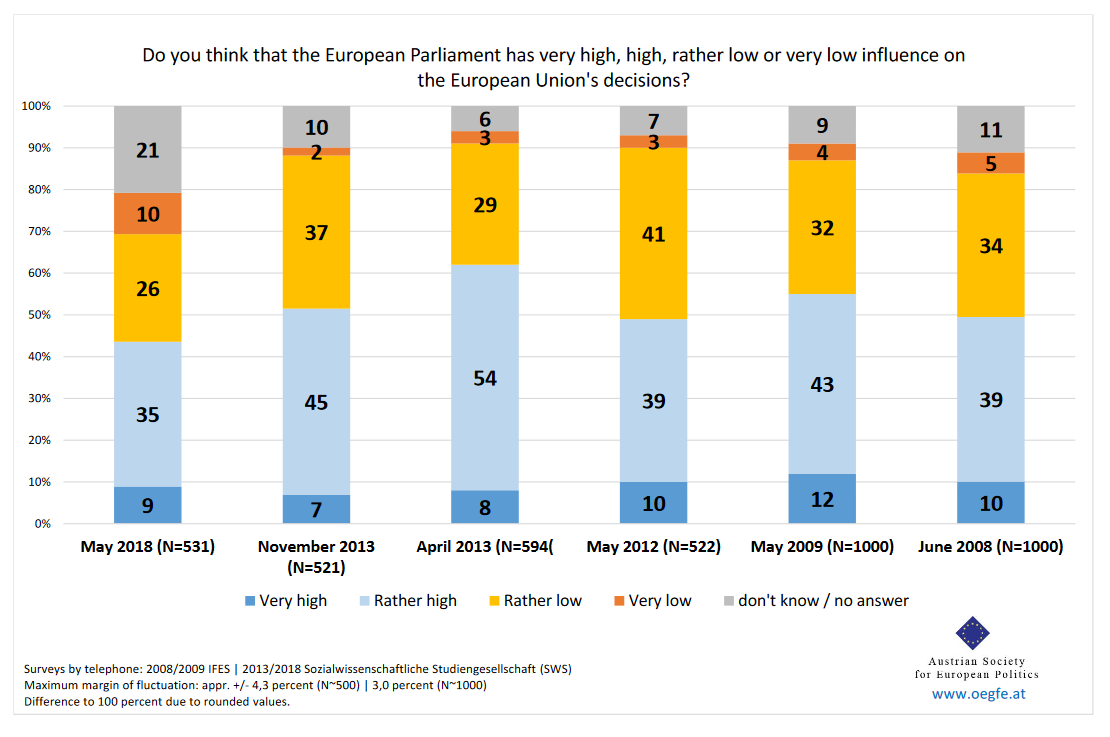In about one year – on May 26th, 2019 – the European Elections will take place in Austria for the sixth time. Public awareness of the EU Parliament though is still rather low. This is the conclusion of a recent survey made by the Austrian Society for European Politics.
A total of 38 percent of the interviewees state that they “very often” (12 percent) respectively “often” (26 percent) take note of news or information about the European Parliament in the media. A majority does not share this view and answer that they “rarely” (42 percent) or “very rarely” (19 percent) hear about the EP in the media. ÖGfE surveys that were made in advance of the European Elections 2014 show significantly that when the election schedule comes closer, the European Parliament gets more focus in the media.
Information level about the work and tasks of the European Parliament kept over the past few years constantly on a low level. Nowadays just under a third of the Austrians asked in the survey feel “very well” (5 percent) respectively “rather well” (27 percent) informed about the activities of the only directly elected European institution. However, nearly two thirds would say that they are “rather poorly” (49 percent) or “poorly” (14 percent) informed. ÖGfE surveys made in advance to the EU elections 2009 and 2014 reveal similar data whereas respondents felt even less informed than today.
44 percent of the surveyed have the impression that the European Parliament has a “high” (9 percent) or “rather high” (35 percent) influence on the decisions made by the European Union. 36 percent do not follow this point of view and state that the European Parliament has a “rather low” (26 percent) respectively “very low” (10 percent) influence. About a fifth (21 percent) is not able to report on this question. An ÖGfE timeline shows that the number of those who grant the European Parliament a very/significant influence on the European Union, has always been higher than those who deny it.
The current survey was conducted from 2 to 9 May 2018 by the Sozialwissenschaftliche Studiengesellschaft (SWS) on behalf of ÖGfE. 531 persons were questioned via telephone (Austrian population from the age of 18 / weighted according to gender, age and education). Maximum margin of fluctuation approx. +/- 4,25 percent. Difference to 100 percent due to rounded values respectively (*) „don’t know / no answer.)






